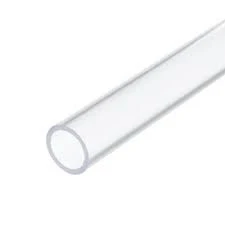Oct . 06, 2024 01:28 Back to list
hdpe sewer pipe
High-Density Polyethylene (HDPE) Sewer Pipe A Comprehensive Overview
High-Density Polyethylene (HDPE) has emerged as a popular choice for sewer pipes in modern infrastructure. Its unique properties and numerous advantages make it a preferred material over traditional piping options like concrete or PVC. This article delves into the characteristics of HDPE sewer pipes, their advantages, applications, and considerations for installation.
What is HDPE?
HDPE is a thermoplastic polymer characterized by its high strength-to-density ratio. It is produced from petroleum and offers excellent resistance to various environmental factors, making it suitable for numerous applications, including sewer systems. The material is known for its flexibility, durability, and resistance to corrosion, making it particularly advantageous in demanding conditions.
Benefits of HDPE Sewer Pipes
1. Durability HDPE pipes have a long lifespan, often exceeding 50 years with proper installation and maintenance. They are resistant to environmental stresses, including changes in temperature and pressure, which can otherwise affect traditional materials.
2. Corrosion Resistance Unlike metal pipes that can rust or corrode, HDPE pipes are non-corrosive. This resistance reduces the risk of leaks and failures, which are critical in sewer applications.
3. Flexibility and Lightweight HDPE pipes are flexible and lightweight compared to other materials like concrete and metal. This characteristic makes them easier to handle and install, resulting in lower labor costs and faster project completion times.
4. Low Friction The smooth interior surface of HDPE pipes provides low friction, which enhances fluid flow and reduces the need for maintenance. This property is crucial for sewer systems where blockages can lead to significant problems.
5. Environmental Impact HDPE is recyclable, making it an eco-friendly option. Many municipalities are opting for materials that reduce environmental burdens, and HDPE's sustainability aligns well with these goals.
Applications of HDPE Sewer Pipes
hdpe sewer pipe

HDPE sewer pipes are used in various applications, including
- Gravity sewer systems Utilized for transporting wastewater from homes and businesses to treatment facilities. - Stormwater drainage Effective for managing stormwater runoff and preventing flooding in urban areas. - Sanitary sewer systems Employed in underground systems for collecting and treating sewage efficiently. - Industrial applications Suitable for various industrial waste transfers due to its chemical resistance.
Installation Considerations
While HDPE pipes offer various advantages, some installation considerations must be accounted for
1. Proper Sizing It is essential to select the correct pipe size for the intended application to ensure adequate flow capacity and avoid potential blockages.
2. Jointing Techniques Different methods of joining HDPE pipes exist, including heat fusion and mechanical fittings. Selecting the appropriate jointing technique is critical for maintaining the integrity of the system.
3. Soil Conditions The soil type where pipes are installed affects their performance. Proper assessment of soil conditions is essential to mitigate issues such as pipe buckling or deformation.
4. Backfill Material Choosing suitable backfill material is vital for supporting the pipe and preventing damage during installation. Proper compaction techniques should be used to avoid shifting.
Conclusion
High-Density Polyethylene (HDPE) sewer pipes offer significant advantages in modern sewer systems, particularly concerning durability, flexibility, and corrosion resistance. Their application across various sectors highlights the material's versatility and effectiveness in efficiently managing wastewater and stormwater. As cities and municipalities aim for sustainable infrastructure solutions, the growing adoption of HDPE pipes illustrates the material's potential for long-term performance and environmental responsibility. Careful consideration of installation factors will ensure the successful implementation of HDPE systems, contributing to cleaner and safer urban environments.
-
Double PE Welding Rod Supplier - High Strength, Durable & Versatile Welding Solutions
NewsJul.07,2025
-
High-Quality PVC-O Pipe Supplier Durable 75mm PVC Pipe & Connections Leading PVC Pipe Company
NewsJul.07,2025
-
HDPE Drainage Pipe Supplier – Durable & Corrosion-Resistant Solutions
NewsJul.06,2025
-
HDPE Sheet Roll – Durable HDPE Plastic Sheet Roll Supplier Transparent PVC Sheet Roll Available
NewsJul.06,2025
-
25mm PVC Irrigation Pipe - Durable & Efficient Watering Solution for Farms & Gardens
NewsJul.05,2025
-
HDPE Culvert Pipe Supplier – Durable, Leak-Proof & Easy Installation Solutions
NewsJul.05,2025

